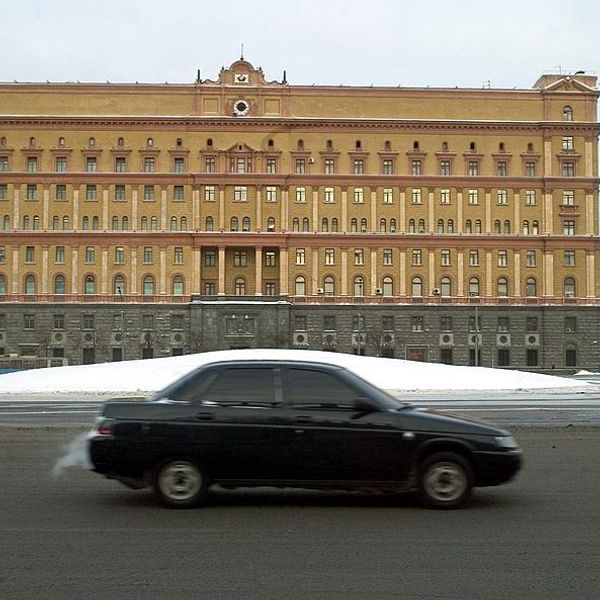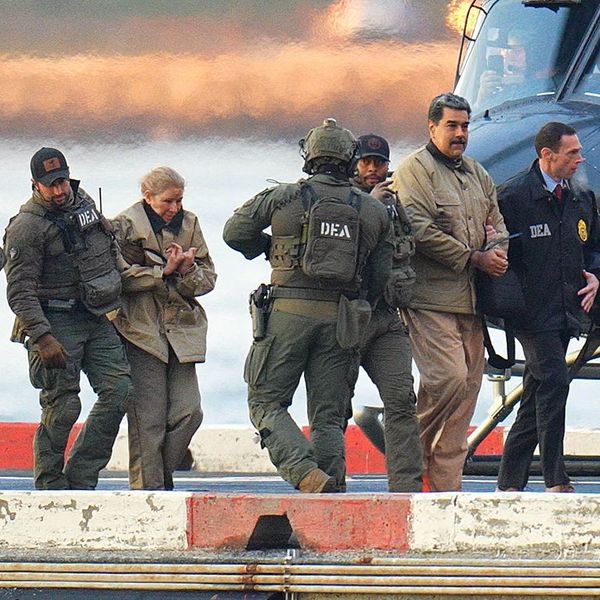OPINION – Wagner Group Leader Yevgeny Prigozhin was a violent man who lived life on a knife’s edge; that he reportedly met a violent end seems both fitting and unsurprising. Most commentators have made this point, remarking that the only surprise was that it took so long.
I’m on the other end of the spectrum of surprise.
When I drafted my last analysis on the subject a few weeks ago, I said that Prigozhin’s end was not imminent because Putin needed time to work through multiple dilemmas. So, I’ll fess up that I was a little surprised that his reported demise came so soon; I doubt that the Kremlin is fully prepared to manage Wagner’s post-Prigozhin transition.
I did expect that Putin would exact revenge; it is impossible to imagine that Putin would ever get over Prigozhin’s betrayal. When I heard CIA Director Burns’ clever and correct assessment, “revenge is a dish Putin likes served cold,” I found myself nodding in agreement. I just thought things were still a bit lukewarm.
But perhaps the question about whether Putin did indeed issue the order to dispatch Prigozhin is immaterial in terms of its implications. Everyone will believe that he did so, and that has implications itself. The message sent is that Putin will not brook dissent, and I’m pretty sure that the delay of two months in sending that message will not reduce its effect on those for whom it is meant.
I have previously outlined three dilemmas that Putin needed to sort through before getting rid of Prigozhin: Prigozhin remains popular and powerful, his message has salience, and Wagner is an important foreign policy tool for the Kremlin. Putin’s plan for dealing with these issues appears to have made some progress, perhaps in Putin’s mind, enough progress to make his move.
Wagner operations in Russia have largely ceased. Government contract money stopped flowing, Wagner’s training base closed, and the Kremlin was dismantling and shifting the responsibility of missions that remain important to the Kremlin to other entities.
Prigozhin has been largely absent from Russian media over the past month, while Putin has been much more present. Last week, Putin visited the site of Prigozhin’s crime: Rostov-on-Don, where he met with Chief of the General Staff Valery Gerasimov. Putin surely meant this to show that he is popular and fully in charge of the place where citizens had cheered on Prigozhin and his Wagner mutiny just two months ago.
The day Prigozhin was killed, Putin gave a speech about loyalty and patriotism as he marked the 70th anniversary and Soviet victory of the famous World War II tank battle in Kursk.
It's not just for the President anymore. Cipher Brief Subscriber+Members have access to their own Open Source Daily Brief, keeping you up to date on global events impacting national security. It pays to be a Subscriber+Member.
The risk of insubordination inside the military has now disappeared. Gerasimov and Defense Minister Sergei Shoigu, who were the main objects of Prigozhin’s mutiny, are wielding more power than ever, and have effectively removed or sidelined commanders who could challenge their decisions and authority.
If there was any doubt that Putin picked loyalty over competence, the formal removal from command on Tuesday of General Sergey Surovikin should end that debate. Surovikin was seen as a close ally to Prigozhin, and critical of Shoigu and Gerasimov. But Surovikin also was the architect of the formidable defensive fortifications that have stymied Ukraine’s counteroffensive and given Putin new hope that he can outlast Western support for Ukraine.
Pro-war milbloggers who supported Prigozhin’s ‘go-big-or-go-home’ approach are quieter and more deferential to Kremlin interests since the arrest in late July of their compatriot Igor Girkin, a firebrand former separatist leader in Ukraine who directly challenged Putin. For example, they exhibited unusual silence regarding Ukraine’s attack on the Chonhar bridge, which connects mainland Ukraine to the Crimean Peninsula.
But Prigozhin’s assassination, if that is what this was, was hardly a risk-free move for Putin given some still unresolved dilemmas. Two seem most important: how to deal with Prigozhin’s power, specifically, the tens of thousands of Wagner fighters who supported him, and how to maintain Wagner’s missions in Africa that are key instruments of its foreign policy on the Continent. On both counts the Kremlin, not dissimilar to their reaction to Prigozhin’s mutiny, does not seem fully prepared.
Wagnerites already are making threatening noises in response to Prigozhin’s death, including blaming Putin and other officials and threatening retaliation. It is curious that the Wagner social media presence on Telegram was not shut down immediately after Prigozhin’s plane went down, as one would expect if this had been a well-planned operation.
That said, Moscow is reacting more quickly in the hours since. They are taking this seriously enough to put forces on alert in Rostov and reportedly have cut off internet and phone connections to the Wagner base in Belarus.
We need to watch this space, but without their charismatic and undisputed leader, Wagner’s ability to organize a response is unclear.
Various reports say that the number of Wagner fighters in Belarus has been dropping, in part because Wagner can no longer afford to pay their high salaries, and also because the bulk of Wagner forces are deployed right now, mainly in Africa.
Relatedly, Prigozhin’s death will pose a new challenge to the Kremlin to keep popular pro-war milbloggers and other supporters of Prigozhin in line. It seems likely that there will be more protestations. If Girkin’s arrest is any indication, the Kremlin will act quickly against anyone who steps too far out of line.
Cipher Brief Subscriber+Members enjoy unlimited access to analysis with experts, private virtual briefings, the Open Source Report and the Dead Drop - an insider look at the latest gossip in the national security space. Upgrade your access today.
How Russian authorities handle state TV and social media coverage will affect popular views. Wagner still engenders significant popular trust, specifically in the context of defending Russia’s border regions according to recent polling. An indication of this support can be seen in a growing, makeshift memorial in front of Wagner Headquarters in St. Petersburg. Will the memorial be swept away? Regardless, there is no immediate risk to Putin given his draconian measures that have quelled public expression of dissent. It still may end up eroding public and elite support for Putin, and this might make a difference someday, just probably not now.
More surprising for me regarding the timing of Prigozhin’s death is the risk that this poses to Putin’s interests in Africa. Putin recently offered free grain for poorer African states, hosting a small group of African leaders in Moscow. He repeated his pledges during a remote speech at the BRICS summit this week.
In addition to ensuring support and income from the handful of African leaders who depend on Wagner services to retain power, Russia has been working to develop the same relationship with coup leaders in Niger. Prigozhin has been key to all of these relationships; he met with the coup leaders when they attended the summit in Moscow and was seen in a video earlier this week, purportedly conducting Wagner business on the continent.
With this in mind, the evolution of the Wagner operations in Africa will provide the best clue regarding Putin’s plans for Wagner moving forward and how prepared he was to manage the aftermath of Prigozhin’s death. With both Prigozhin and Wagner’s number two, Dimitry Utkin, out of the way, Wagner unit commanders are left to deal with the Kremlin.
Putin met with these commanders and Prigozhin in the wake of the mutiny. If Putin did order Prigozhin’s killing, one would assume he would have a plan for how to continue the Wagner missions in Africa. Prigozhin’s personal relationships and organizational management skills will be difficult to simply reassign, so more creative management is probably in order.
More likely is the scenario that Moscow will try to retain continuity for each operational theater for now and assign a leader or a group of leaders loyal to the Kremlin who will oversee the operations. Over time, we may see more rebranding and reorganization to prevent too much power from resting in the hands of one person.
Let’s see how this unfolds. My guess is that it will be at least a little messy, providing an opportunity for the U.S. and other parties to fill voids. More immediately, the current Wagner commanders are reportedly meeting to discuss what comes next.
The message of Prigozhin’s demise is fairly clear: they will have to make a decision or the decision will be made for them. This is Kremlin rules.
Opinions expressed are those of the author and do not represent the views or opinions of The Cipher Brief.
The Cipher Brief is committed to publishing a range of perspectives on national security issues submitted by deeply experienced national security professionals.
Have a perspective to share based on your experience in the national security field? Send it to Editor@thecipherbrief.com for publication consideration.
Read more expert-driven national security insights, perspective and analysis in The Cipher Brief













